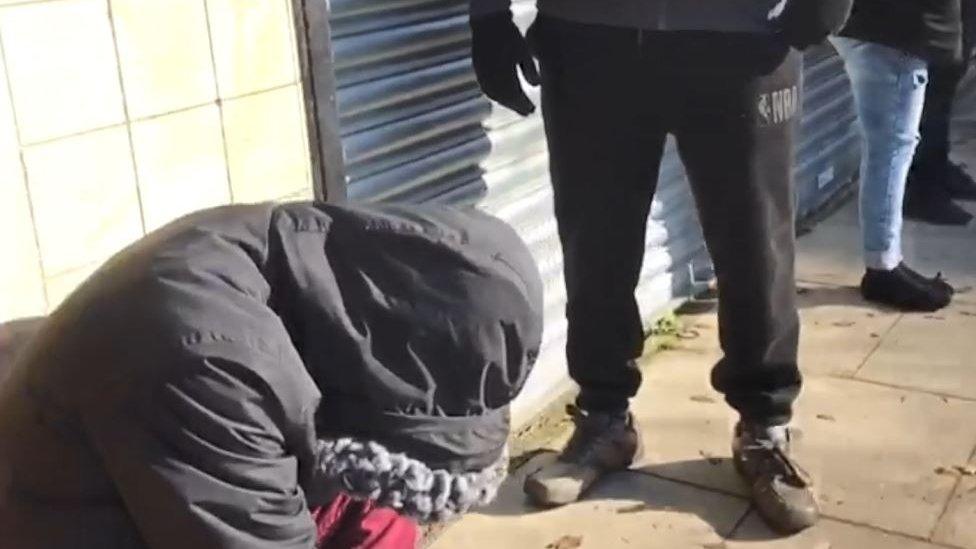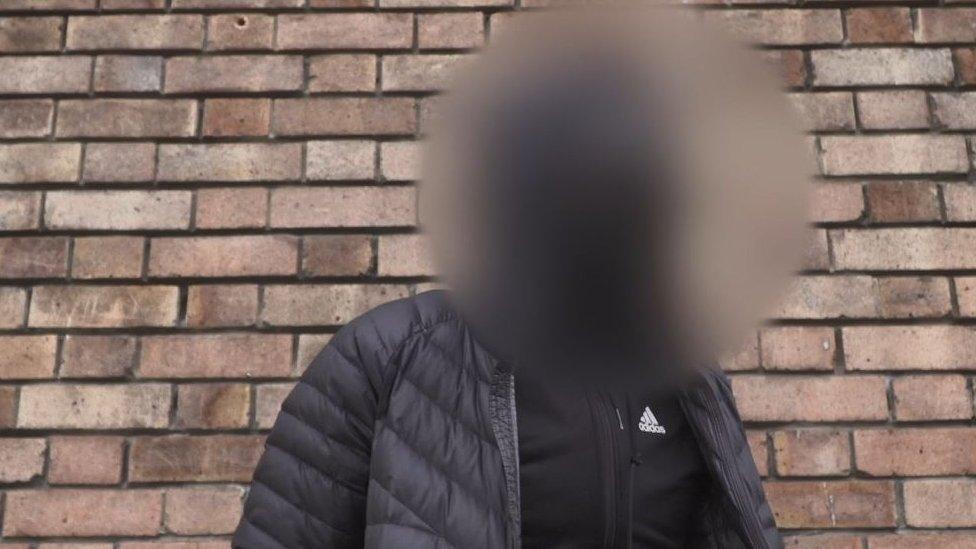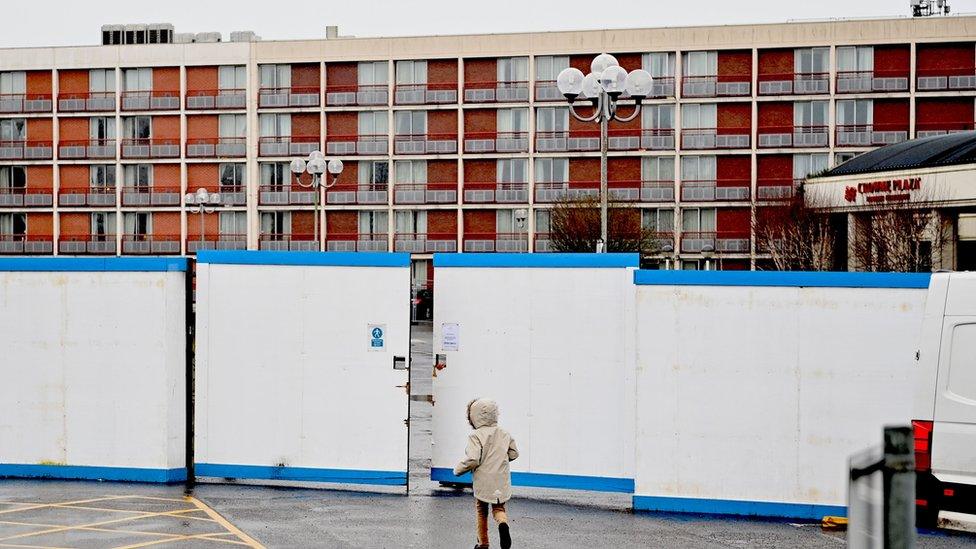Asylum hotels: 'Covid, fights and abuse' at London centres
- Published

Asylum seekers were moved to hotels - in Chiswick, Twickenham and Fulham - in response to the coronavirus pandemic
Fights, Covid-19 outbreaks and alleged abuse have been reported at four west London hotels housing asylum seekers.
One hotel has been described as a "prison" by residents, who are staying on site during the coronavirus pandemic, after a hotel manager allegedly locked residents' doors.
Police have not been able to find all the incidents described on their records.
The Home Office has refused comment, saying it is not responsible.
It directed the BBC to Clearspring, a company that is used by the government to house asylum seekers.
It said it provides "safe, warm, secure accommodation with three nutritious meals served a day."
Some asylum seekers say the conditions in these hotels are affecting their health.
One man said: "When I arrived here I weighed 68kg. Now I am down to 60kg.
"The amount of food we're given isn't fit for a child. If you go out, there's always surveillance.
"I'm living in fear. I almost died in the seas getting here. I left my country because there was no freedom. Now I am not free here. It is really destroying me."

Destitute asylum seekers have a right to temporary accommodation
Asylum seekers were moved to the hotels - in Chiswick, Twickenham and Fulham - in response to the coronavirus pandemic.
Destitute asylum seekers have a right to temporary accommodation and government aid while their application for asylum is being considered in the UK.
The Home Office extended this support to those whose claims have been completed, to ensure people were not made homeless during lockdown and were able to follow social distancing guidelines.
Moving asylum seekers into hotels is "only a temporary measure", the Home Office has said.
In a statement, Clearspring added: "The pandemic put the accommodation system under severe strain because of measures to control and manage the public health risk.
"Asylum seekers are able to independently raise any issue or concern which will then be investigated accordingly."

A hotel in Heathrow is housing asylum seekers as they wait for their asylum claims to be processed
People spoke to the BBC under the condition of anonymity, as they feared raising concerns might affect their asylum claims.
Another man said: "It feels like I'm in prison - the same environment that I was trying to escape from.
"The hotel manager sets his own rules. If you don't follow, he shouts and locks you out.
"He locked me out in cold weather. I was so cold after two hours outside I called 999.
"The police came and told the manager to give me my key, but it happened again."
The police told the BBC they could not find any reports matching this event in their records.
One woman said a resident at her hotel had tested positive for coronavirus.
'Not safe for children'
She said: "She caught the virus and she been in hospital for three months and might not survive.
"We haven't been tested regularly in the hotel. The children play with each other. Maybe it can spread.
"We feel it is dangerous. When I hear my family cough, I just pray it's not coronavirus."
One male asylum seeker told the BBC his hotel was not suitable for his children.
"Then last week another man started fighting with security officers, and again the police came," he said.
Police confirmed their records show a group of males were reported to be fighting at the hotel, but no arrests were made.